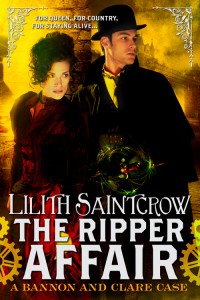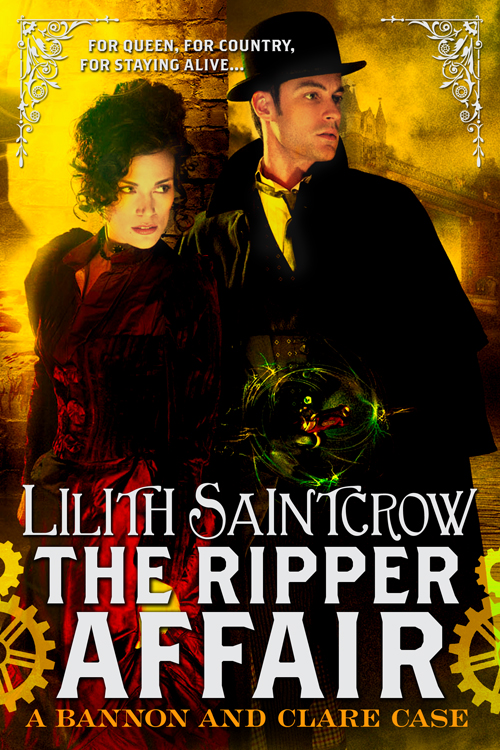On the Case with Bannon & Clare

I have enjoyed the Bannon & Clare books thoroughly. From inception to proofs, even when frustrated at the characters’ insistence on doing what they pleased instead of what I thought was proper, I have felt a secret little thrill of joy at each page.
No little of that joy comes from research—a huge canvas map of 1880s London hanging on my office wall, full of notes and dirty from my fingermarks, a shelf groaning under various Victoriana books and assorted notes stuffed in a binder covered with fleur-de-lis, long emails exchanged with various people about pepperbox pistols and gaslamps.
The other half comes from gleefully throwing research out the window and taking off into the wild blue yonder with only a guess and a prayer.
The longer a series goes on, the more choices one initially makes in the first flush of creation become…well, not quite a straitjacket, but foundation specs that need to be honored if a work is to have any internal consistency at all. In other words, you can have utter lunacy on the page, but it must be consistent lunacy.
I am certain there is much madness in any book of mine, but I do try to make it consistent. Part of that consistency is Emma Bannon’s character. She is female in a time and place that doesn’t allow women a great deal of leeway, and navigating through such a sea is a difficult thing. Her talents and business acumen make it both more and less difficult in varying ways, and she is most often the one to “rescue” Clare. That inversion, and the power dynamics between them, is fascinating for me.
Even though Archibald Clare is a mentath and a gentleman, he is not so much a hero as a socially awkward misfit unable to compromise his honour for advantage, and not really caring what the world thinks of him. Emma Bannon cares even less, but is forced to play the social games of a lady as if she did, because it makes things easier for her and those she protects. Neither of them are quite heroes, and I like that the usual “gendered” roles—rescuer and rescued, logic and emotion—for both of them shift and change all through the series.
Another area of consistent madness is the uneasy relationship between magic and Industrial Revolution technology in the series. I hesitated over calling the Bannon & Clare Affairs “steampunk” because to me, that’s an aesthetic, not a genre. I much prefer the term “alt-history,” especially since I know the exact moment their historical timeline diverged from our own less-magical (perhaps?) one.
Above all, though, I set out to tell some ripping good, exciting yarns. I hope I’ve succeeded. I did have plans for what I called “the traveling books”—Bannon & Clare in America, in Russia, in India during the Raj—but alas, those are not to be.
Yet.
So I hope you enjoy The Ripper Affair—and I hope my madness, so to speak, is consistent.
…
THE RIPPER AFFAIR (US | UK | AUS) is available now! Look for it online and in stores everywhere, and check this sample from the audio book read by Moira Quirk.

